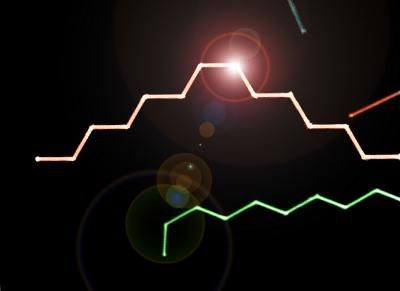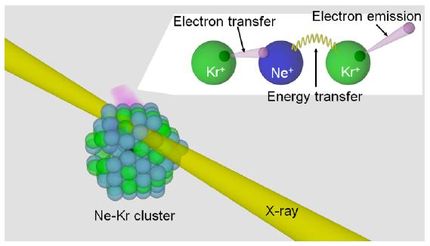International agreement on the FAIR international accelerator facility
In Wiesbaden, Germany, nine countries signed the international agreement on the construction of the accelerator facility FAIR (Facility for Antiproton and Ion Research), which will be located at the GSI Helmholtz Center for Heavy Ion Research in Darmstadt, Germany. Signing the agreement for Germany were Helge Braun, Parliamentary State Secretary to the Federal Minister for education and Research, and Peter Ammon, State Secretary of the Federal Foreign Office. Also signing the agreement were science ministers and state secretaries from Finland, France, India, Poland, Romania, Russia, Slovenia and Sweden. Hessian Premier Volker Bouffier and State Secretary Braun also signed an agreement governing the cooperation on FAIR between the German federal government and the federal state of Hesse. FAIR will be one of the largest research projects and most sophisticated accelerator centers worldwide. The international agreement has now cleared the way for its realization. Germany will bear roughly three-quarters of the total costs of approx. €1 billion, with Hesse contributing €90 million of that amount.
"FAIR will enable us to produce cosmic matter in the laboratory, and scientists from all over the world will be able to explore new dimensions of matter, including antimatter and hot stellar matter. They will develop innovative high-performance computers for their basic research and expect to achieve breakthroughs for new nanomaterials and biomedical applications," says Professor Horst Stöcker, Scientific Director of GSI.
The establishment of the company FAIR GmbH, which is also part of the agreement, was likewise completed. "We will coordinate the construction of the accelerator and experiment facilities. The participating countries will contribute their technical and scientific expertise to the project, in addition to their financial and in–kind input," says Professor Boris Sharkov, the first Scientific Director of FAIR GmbH, which will be based at the GSI Helmholtz Center in Darmstadt.
The FAIR accelerator center to be built in Darmstadt is one of the largest projects for basic research in physics worldwide. Roughly 3,000 scientists from more than 40 countries are already working on the planning of the experiment and accelerator facilities. FAIR will generate antiproton and ion beams of a previously unparalleled intensity and quality. When completed, FAIR will comprise eight ring accelerators of up to 1,100 metres in circumference, two linear accelerators and around 3.5 kilometres of beam pipes. The existing GSI accelerators will serve as preaccelerators for the new facility.
FAIR will make it possible to conduct a wider range of experiments than ever before, enabling scientists from all over the world to gain new insights into the structure of matter and the evolution of the universe since the Big Bang.
Researchers working at FAIR will therefore have the opportunity to investigate antimatter with a view to solving the mystery of why the universe is almost completely devoid of antimatter except for minuscule traces, whereas normal matter — the matter that makes up our bodies and the world around us — is "privileged".
Researchers working at FAIR are also hoping to discover new forms of matter and thus track down the mystery of dark matter in the universe. Although dark matter makes up a much greater percentage of the universe than the matter with which we are familiar, scientists have still not succeeded in observing it directly.
Researchers at the forthcoming facility will also be able to investigate how stars explode and which processes are involved. According to our present understanding of the universe, the chemical elements came into being as a result of powerful stellar explosions, and they continue to be formed in this way. This means that in the final analysis virtually all matter, including ourselves, consists of stardust — the remains of exploded stars.
FAIR will be able to generate ion beams, which occur naturally in cosmic radiation. This will enable scientists to study the effects of ion beams on materials and tissue samples. They hope this will enable them to test components for satellite technology and to conduct radiobiological studies for manned space missions or new applications in medicine.
Most read news

Get the analytics and lab tech industry in your inbox
By submitting this form you agree that LUMITOS AG will send you the newsletter(s) selected above by email. Your data will not be passed on to third parties. Your data will be stored and processed in accordance with our data protection regulations. LUMITOS may contact you by email for the purpose of advertising or market and opinion surveys. You can revoke your consent at any time without giving reasons to LUMITOS AG, Ernst-Augustin-Str. 2, 12489 Berlin, Germany or by e-mail at revoke@lumitos.com with effect for the future. In addition, each email contains a link to unsubscribe from the corresponding newsletter.
























































